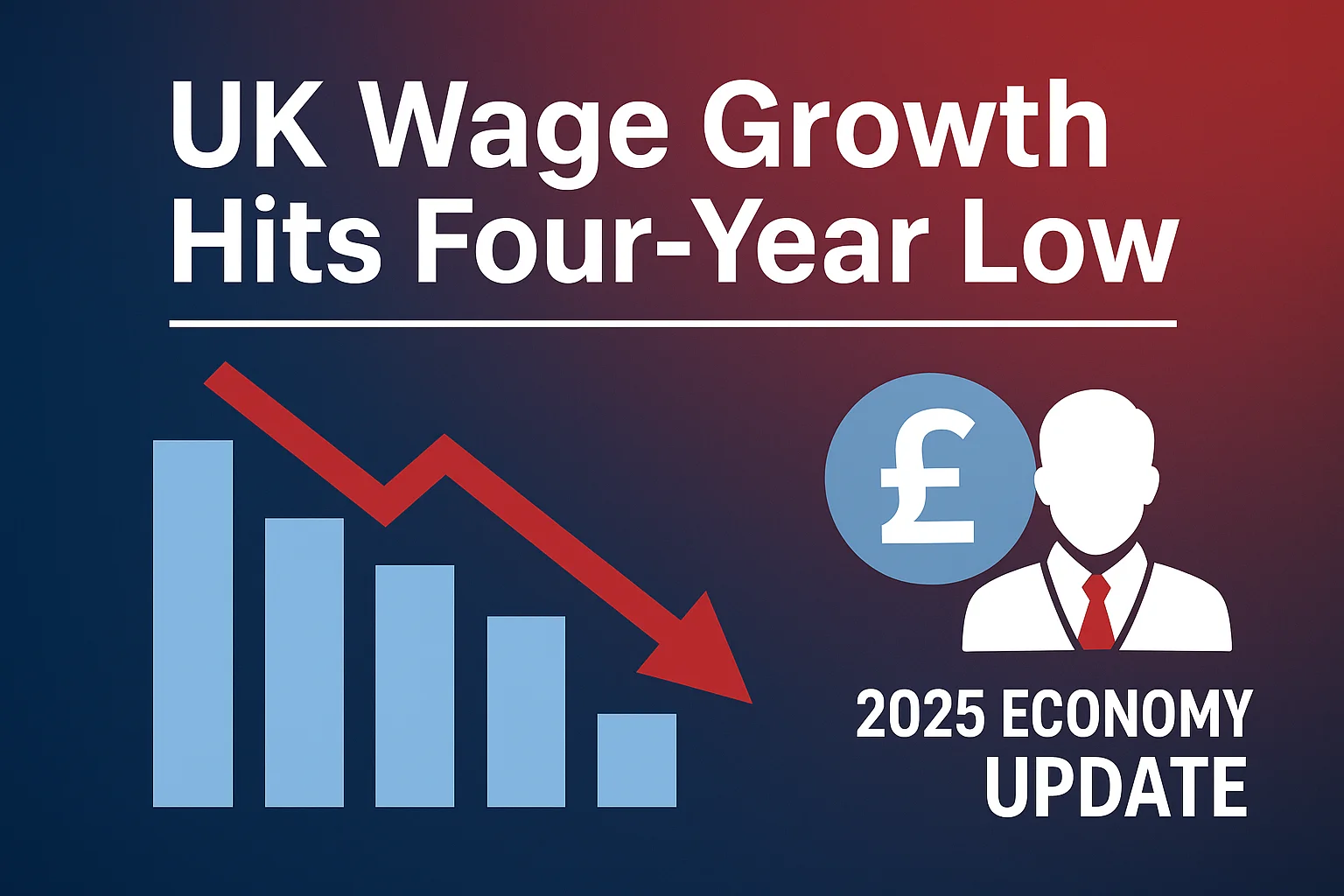Introduction
The rate of UK wage growth in United Kingdom wages has hit a four-year low.
Experts claim the cooling job market is the primary reason for the decline after years of robust wage increases.
For employees, this offers a shrinking pay packet in real terms due to the high prevailing inflation.
This piece shall discuss the prevailing situation, its implications, and the possible outcomes for the United Kingdom economy in 2025.
What’s the Problem with Wage Growth

Wage growth in the UK has hit its lowest levels since 2021 owing to the slight increase in average weekly earnings.
The data has highlighted the tendency of businesses to cut costs by limiting pay increases, especially during periods of low economic growth.
Cost-containment strategies of businesses have also been driven by the new trend of recruitment freezes and the offer of low packages to new employees.
In a nutshell, people are earning less and high inflation is making the essentials even more expensive.
What are the Reasons for Falling Wages
The UK economy has been losing inflationary pressure over growth and is in a slow growth phase.
The costs associated with energy supplies and the prevailing inflation mean for employers to raise pay.
More job seekers are returning to the labor market increasing competition for the lower-paying jobs.
Interest rates: Businesses and households are feeling the impact of higher borrowing costs.
Together, the pay race that was recovering after the pandemic has been suppressed.
Impact on UK Workers
For each person, the and higher costs of living like food and rent, fuel the and reduced the ability to save.
Some households are covering the basic costs using higher credit card debt and lost savings.
Workers in retail, and hospitality, in the public services, and in all of the service sectors are the most feeling the impact.
Higher skill positions have pay packets in the sectors of technology and finance, and even there, the increases have been more modest, but the increases have been smaller than previously.

What Experts Are Saying
The European Central Bank has signaled that the momentum in the UK economy will assist in the deflation of the Euro currency.
A senior analyst from the Bank of England reported:
“Wage growth cooling is necessary to bring inflation down, but it also shows weaker demand in the job market.”
The Bank of England is unlikely to increase interest rates in the UK when the economy is stagnant.
How It Affects the UK Economy
When pay growth slows to increase savings, people spend less to save.
This will lead to slower economic growth, and economic growth will be slower in economic recovery.
Some professionals believe that this trend has the potential to steady inflation and price rates to the targeted 2%.
Although the pain from a slowdown in wages is felt, in the long run, a balanced economy will be more sustainable.
What Workers Can Do
Smart management and strategic planning is key to minimizing the adverse effect that slow wages will have.
Experts recommend the following strategic steps:
Identify and prioritize essential expenses, and control discretionary spending.
Find side income and potential avenues for skill acquisition.
Pursue online courses and apply for more satisfying and better-paying roles.
Before changing jobs, consider and evaluate other mid-career opportunities.
The goal is to adjust to the reality instead of waiting for rapid wage increases.
Global Context

The UK is not in isolation, and the situation is the same for other developed economies too.
Like the UK, other advanced economies, for example, the United States and Germany, are also experiencing a decline in wage increases as inflation goes down.
This indicates that the situation is not unique to the UK, but part of a bigger global trend.
Nonetheless, British citizens have been impacted the most by the situation, attributed to the increase in the cost of living and housing
Declining wage growth in the UK suggests that the economy is losing momentum, but the price stability is a good sign.
For individuals, the situation will mean spending less and more goal-oriented extended time planning.
For policymakers, balancing inflation with supporting people’s incomes is within arm’s reach, and is vital to living with today’s economic conditions.
If the economy strengthens in say, 2026, the expected economic conditions hover around steady moderate economic growth.
For now, focusing on skills is the best way to prepare.
